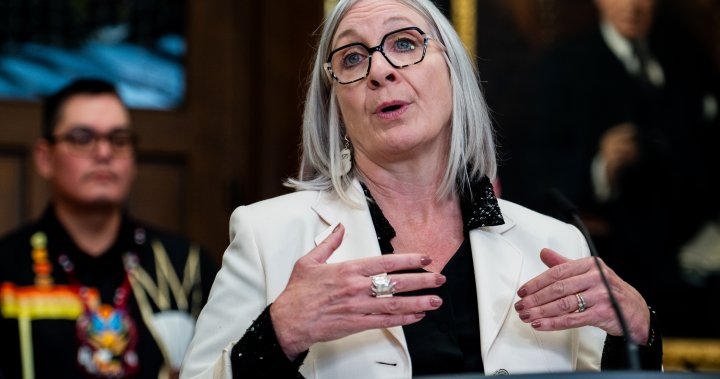Canada’s Indigenous Services minister, Patty Hajdu, faced questions from Conservative MPs during a parliamentary committee meeting about non-Indigenous companies claiming to be Indigenous to win contracts meant for First Nations, Inuit, or Métis businesses. An investigation by Global News in partnership with researchers at First Nations University of Canada raised concerns about the legitimacy of some companies listed in the Indigenous Business Directory, which connects Indigenous businesses to federal contracts. This investigation revealed loopholes in the Procurement Strategy for Indigenous Business (PSIB), a program designed to give five percent of government contracts to Indigenous companies as a form of economic reconciliation.
Federal documents dating back to 1999 warned about the potential exploitation of the PSIB program by “fronts” and “shell companies.” Conservative MP Garnett Genuis described the abuse as a case of “cultural appropriation leading to financial misappropriation.” Hajdu deflected questions about accountability by challenging the sincerity of Conservative interest in the issue and suggesting that they may view the initiative as being “too woke.” She admitted that the PSIB program is currently under review, specifically in regard to how the federal government determines if a company is truly Indigenous-owned.
The PSIB program was created in 1996 to help Indigenous businesses access federal contracting opportunities. Under the current Liberal government, departments must set aside at least five percent of their procurement spending for companies owned and controlled by Indigenous people or joint ventures with Indigenous companies. Global News attempted to gather specific information from the top listed Indigenous contractors about their connections to First Nations, Inuit, or Métis communities. Some contractors declined to provide information, while others received significant federal contracts since 2022.
An official with Indigenous Services Canada (ISC) reportedly told an Indigenous tribal council that they could upload any document, including a “picture of a bunny,” to qualify as a contractor. The federal government later clarified that such documentation was not sufficient and apologized to the tribal council for the misleading information. Hajdu acknowledged that companies with Indigenous partners may change over time and that companies formerly Indigenous-owned but with a revised management structure could still apply for federal contracts.
The issue of determining Indigenous ownership of companies participating in the PSIB program is complex and rooted in colonial structures of defining Indigeneity. The federal government is working with Indigenous groups to address these challenges and refine the criteria for qualifying as an Indigenous-owned company. Hajdu emphasized the importance of Indigenous economic development and the need for ongoing review and improvement of the PSIB program to prevent abuse and ensure that contracts intended for Indigenous businesses are awarded appropriately.


